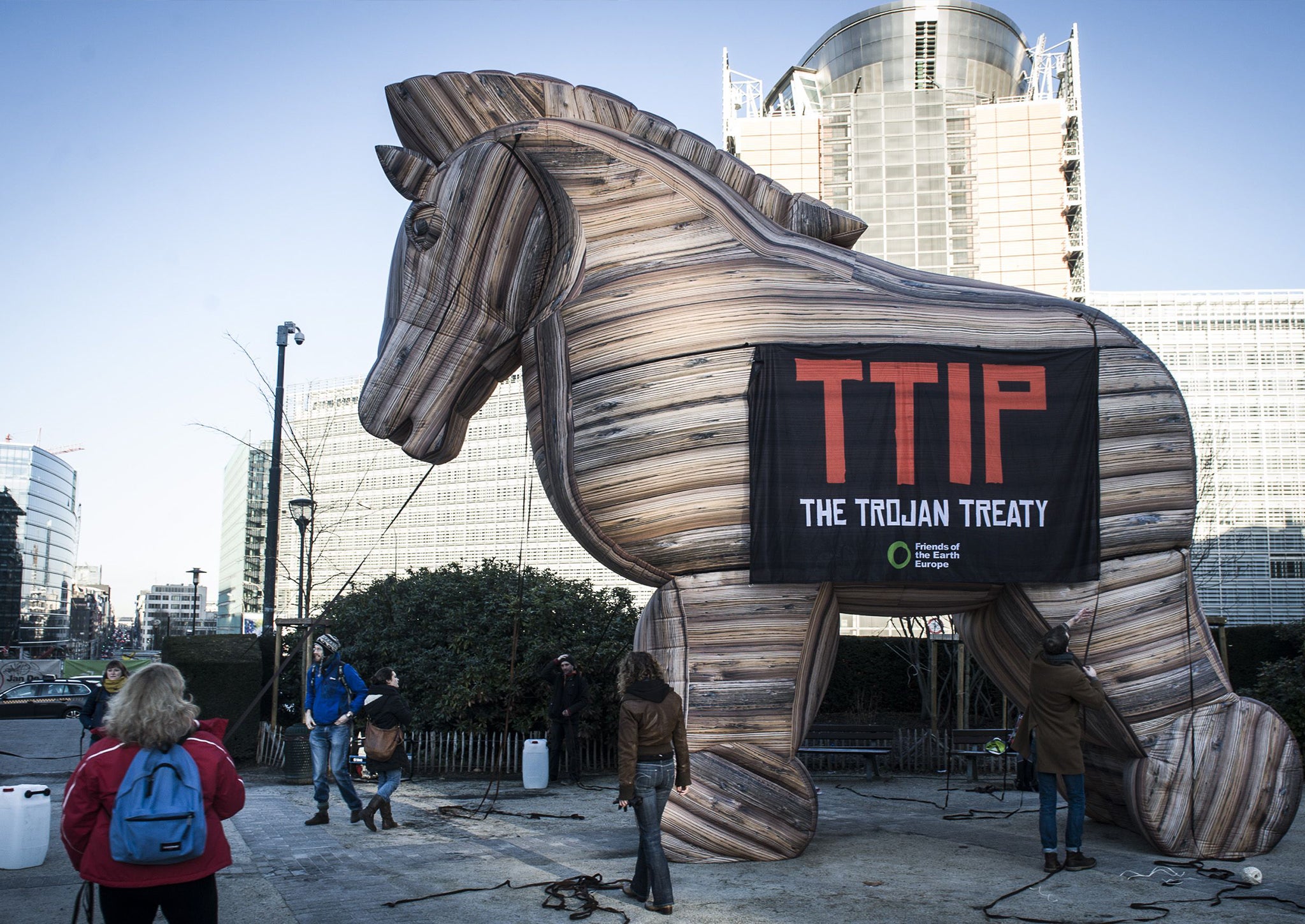TTIP's definition of Feta cheese is getting more attention than saving the NHS
So strong are views of Europeans when it comes to food that French President François Hollande threatened to veto TTIP if products made in specific regions cannot retain exclusivity over their names

Your support helps us to tell the story
From reproductive rights to climate change to Big Tech, The Independent is on the ground when the story is developing. Whether it's investigating the financials of Elon Musk's pro-Trump PAC or producing our latest documentary, 'The A Word', which shines a light on the American women fighting for reproductive rights, we know how important it is to parse out the facts from the messaging.
At such a critical moment in US history, we need reporters on the ground. Your donation allows us to keep sending journalists to speak to both sides of the story.
The Independent is trusted by Americans across the entire political spectrum. And unlike many other quality news outlets, we choose not to lock Americans out of our reporting and analysis with paywalls. We believe quality journalism should be available to everyone, paid for by those who can afford it.
Your support makes all the difference.EU negotiators are determined to protect products like Feta cheese from the grip of the Transatlantic Trade and Investment Partnership (TTIP).
Currently there is a row between the USA and the EU over what you can and can’t call Feta cheese under the controversial trade agreement TTIP. The USA refuses to appease European wishes to ban the sale of any American products labelled Feta, Gorgonzola or Champagne. Only products made in certain geographgical regions can be sold under these original names according to EU regulations.
In fact, so strong are views of the French when it comes to food, that French President François Hollande threatened to veto TTIP if this issue is not resolved stating: “We will never accept questioning essential principles for our agriculture”.
This national pride and protectionism doesn’t seem to have spread to this side of the Channel however. Despite being one of the cornerstones of British identity, David Cameron has failed to take such defensive measures over the NHS.
TTIP threatens the NHS with irreversible privatisation. Once the deal is signed the UK government will be powerless to stop it. Cameron has attempted to quash the growing concerns over the trade deal’s impact on the NHS by describing the genuine threat TTIP poses to the NHS as the ‘reddest of red Herrings’.
He even went as far as making the unbelievable claim that the NHS was ‘completely protected’ from TTIP. If this was the case why has the government consistently refused to make public the legal advice it has received on the NHS and TTIP?
The reality is that David Cameron’s assurances over the NHS have more holes in them than Swiss cheese. Unite has received two separate legal opinions which show the threat TTIP poses to the NHS and unlike the government we have made that advice public for all to see. One of Britain’s top lawyers in European law, Michael Bowsher QC, went as far to say that TTIP poses a ‘real and serious threat’ to the NHS.
The people of this country do not believe that the NHS belongs in a US trade deal. Unite met the most senior European Commission lawyer responsible for TTIP – he too was unable to give us the guarantees that the British people want. How on earth can David Cameron claim the NHS is protected from TTIP when those responsible for drafting the TTIP texts can’t or won’t give the British people that categorical guarantee?
Protecting the NHS is straightforward. David Cameron can tell the Commission to protect the NHS just like Greece can call for Feta cheese to be protected. Other European countries have secured exemptions. If the French can protect their film industry from the trade deal, the UK can do the same with the NHS.
It’s time for David Cameron to say hard cheese to US healthcare and refuse to hand over the keys to our hospitals and GP surgeries.
Gail Cartmail is Unite assistant general secretary
Join our commenting forum
Join thought-provoking conversations, follow other Independent readers and see their replies
Comments